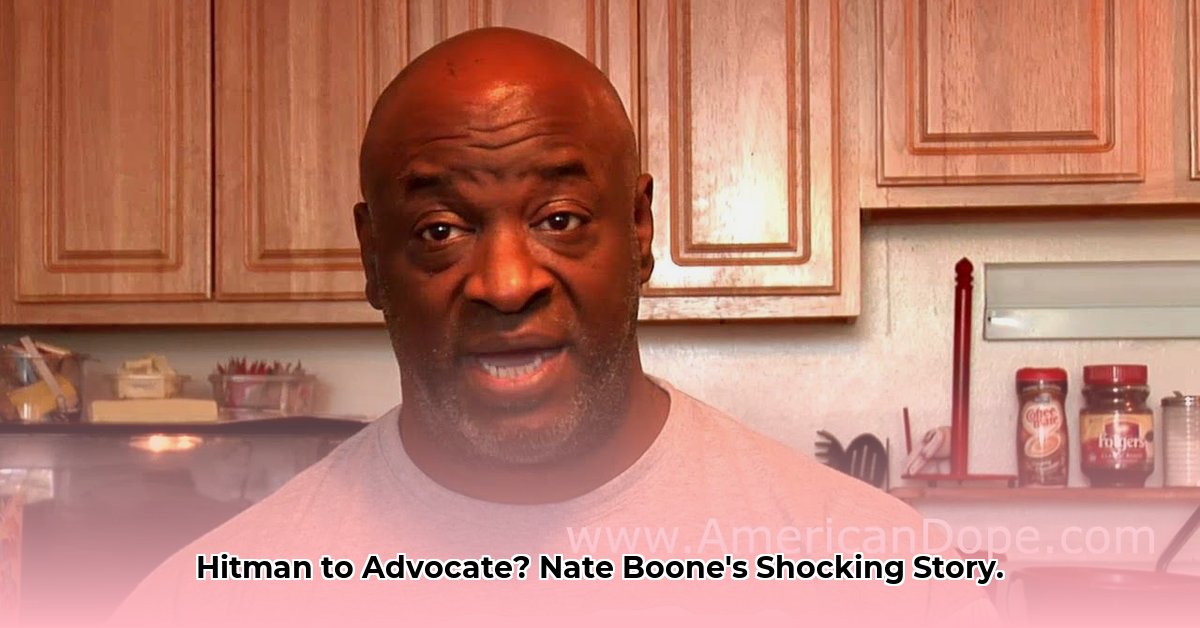
Nate Boone, now known as Nathaniel Craft, etched his name into the annals of 1980s Detroit's brutal underworld. His alleged net worth—a reported $250,000—is a chilling testament to his career as a hitman, a sum earned through violence and the city's crack cocaine epidemic. But his story transcends mere monetary value; it's a narrative of transformation, a descent into darkness followed by an improbable ascent toward redemption. This is a true crime story, a journey into the heart of Detroit's most violent era, and the complex life of a man who traded a life of fear for a future built on unlikely alliances and a fragile hope for change.
The Detroit of the 1980s was a crucible of crime. Crack cocaine fueled a maelstrom of violence, and Boone, a young man swept into its current, quickly rose through the ranks of the notorious Best Friends gang. He became a feared assassin, his reputation built on a trail of bloodshed. That $250,000 represents not just financial gain but the grim cost of his actions—a macabre accounting of lives lost. How much of that wealth remains today is a mystery, shrouded in the shadows of his past and the complexities of his subsequent life under witness protection. But the figure itself sets the stage for understanding the scale of his criminality and the startling transformation that would follow. How much of his past continues to haunt him?
Facing a lifetime behind bars, Boone made a fateful decision: he became a cooperating witness. His confession, implicating his former associates in dozens of murders, sent shockwaves through the criminal underworld, crippling the Best Friends gang. This act of cooperation—a desperate gamble for survival intertwined with a potentially nascent desire for redemption—bought him his freedom, but at a steep price. His former identity was erased, his past became a carefully guarded secret, and his future remained uncertain. It was a trade-off between life and anonymity, a transaction with far-reaching consequences. This pivotal choice was fueled by necessity, but did it stem from a growing empathy?
One persistent, yet unverified, claim connects Boone to a contract on the life of Richard Wershe Jr., better known as "White Boy Rick." While the film White Boy alludes to this possibility, concrete evidence remains elusive. Such ambiguities highlight the inherent challenges in reconstructing Boone's past and establishing the precise origins and current status of his financial assets. His story is riddled with gaps, raising more questions than it answers. Were there other, undiscovered turning points in his life?
Now known as Nathaniel Craft, Boone lives under witness protection, a world apart from the violence that defined his past. He has become a vocal advocate for criminal justice reform, an unlikely champion for a system that once held him captive. This transformation, however dramatic, is perpetually shadowed by his past. His new life is a precarious edifice built on cooperation, secrets, and the daunting weight of his history. The $250,000, if any remains, serves as a haunting reminder of a life he desperately tries to leave behind. Does this newfound advocacy represent true remorse, or a self-serving attempt to rebuild his life?
The difficulty in fully portraying Craft's story stems from limited accessible information. Key documents and official records remain largely inaccessible, leaving significant gaps in the narrative. While certain accounts suggest specific events and figures, the lack of solid verification inhibits a complete and definitive portrayal. The uncertainty surrounding his financial situation, in particular, underscores the inherent limitations of this investigation. This lack of information is a constant challenge in the pursuit of the truth. Has his past truly been left in the shadows, or does it continue to shape his present?
Craft’s narrative raises compelling ethical questions about redemption, remorse, and responsibility. His cooperation, while crucial in dismantling a dangerous criminal organization, invites a critical examination of the implications of his actions. He betrayed his former associates, saving his own life in the process. This raises profound questions about justice, morality, and the possibility of genuine change, even for those who have inflicted unimaginable harm. How do we measure true redemption and what are the lines we must not cross in the pursuit of it?
In essence, Nathaniel Craft's story is more than a simple tale of a hitman's transformation. It represents a powerful meditation on the enduring weight of the past, the complex search for atonement, and the inherent ambiguities that often shroud lives marred by violence and crime. His story, though incomplete, is a compelling and ongoing narrative, one that necessitates continued investigation and thoughtful consideration. The legacy of Nate Boone Craft, the $250,000, and the life he's rebuilt remain a subject of profound scrutiny and continuing debate. His story is far from over.